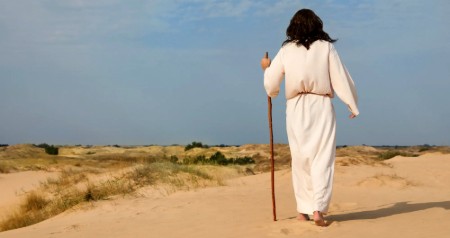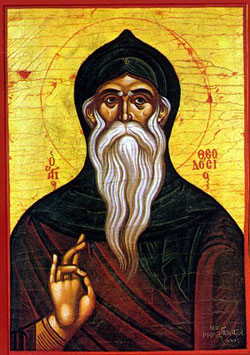 Dear readers, Catholic Online was de-platformed by Shopify for our pro-life beliefs. They shut down our Catholic Online, Catholic Online School, Prayer Candles, and Catholic Online Learning Resources—essential faith tools serving over 1.4 million students and millions of families worldwide. Our founders, now in their 70's, just gave their entire life savings to protect this mission. But fewer than 2% of readers donate. If everyone gave just $5, the cost of a coffee, we could rebuild stronger and keep Catholic education free for all. Stand with us in faith. Thank you. Help Now >
Dear readers, Catholic Online was de-platformed by Shopify for our pro-life beliefs. They shut down our Catholic Online, Catholic Online School, Prayer Candles, and Catholic Online Learning Resources—essential faith tools serving over 1.4 million students and millions of families worldwide. Our founders, now in their 70's, just gave their entire life savings to protect this mission. But fewer than 2% of readers donate. If everyone gave just $5, the cost of a coffee, we could rebuild stronger and keep Catholic education free for all. Stand with us in faith. Thank you. Help Now >
The first tax revolt: 800 years later, the Magna Carta stands boldly as spiritual predecessor to the Bill of Rights and U.S. Constitution
FREE Catholic Classes
This year will mark the eighth centennial of the signing of the Magna Carta by King John at Runnymede near Windsor, on June 15, 2015.
Highlights
Catholic Online (https://www.catholic.org)
1/27/2015 (9 years ago)
Published in Europe
Keywords: Magna Carta, England, Britain, U.S., Bill of Rights
LOS ANGELES, CA (Catholic Online) - The Magna Carta was one of the first documents that limited the power of the English crown, and was extremely influential as a foundation of the British parliamentary system, and thus the Republican system of the United States.
It started when English Barons, upset over feudal payments to the English Crown, as well as the current justice system for nobles, rebelled, and managed to force King John to sign. Though this original "Great Charter" did not bind King John for more than a year, later years and successive "Great Charters - or amendments thereof - brought a great deal of power to the nobility, and weakened the power of the sovereign.
This year, Britain will start celebrating the document on February 3, where the only four known copies of the Magna Carta from 1215 will be brought together at the British Library; 1,215 people, chosen by public lot, will be able to view these historic and ancient documents.
While a brief overview of the Magna Carta is taught in most of the English-speaking world, few know what the so-called Great Charter actually was.
The Magna Carta was a peace treaty, or more specifically a failed one. This document was drafted by the Archbishop of Canterbury in order to make peace between the very unpopular King John and coalition of barons who had rebelled against him.
This draft protected the rights of the Catholic Church in England, protected the barons from illegal imprisonment, gave them access to swift justice and limited the amount of money the English Crown could collect as feudal payments.
These acts were to be enforced by a council of 25 barons, but neither side actually followed through with their end of the bargain, and less than a year later the treaty was annulled by Pope Innocent III, which led to the First Barons War, which eventually caused a second Magna Carta to be signed by King John's son in 1216.
The most famous clauses within the Magna Carta are echoed, though in somewhat less archaic wording, in the U.S. Constitution.
Clause 39 says: "No free man is to be arrested, or imprisoned, or disseised (have their legal property wrongly seized), or outlawed, or exiled, or in any other way ruined, nor will we go against him or send against him, except by the lawful judgment of his peers or by the law of the land."
And clause 40 says: "To no one will we sell, to no one will be deny or delay, right or justice."
You can take care of your body and mind easily, but how are you taking care of your spiritual needs?
These clauses laid down a foundation for the rights and freedoms of English subjects that would be later built upon through more documents imposed on the Crown, as well as in legal courts.
Great Enlightenment thinkers and even the American Founding Fathers drew on this portion of the Magna Carta. And the U.S. Bill of Rights and Declaration of Independence echo these sentiments.
---
'Help Give every Student and Teacher FREE resources for a world-class Moral Catholic Education'
Copyright 2021 - Distributed by Catholic Online
Join the Movement
When you sign up below, you don't just join an email list - you're joining an entire movement for Free world class Catholic education.
-

-
Mysteries of the Rosary
-
St. Faustina Kowalska
-
Litany of the Blessed Virgin Mary
-
Saint of the Day for Wednesday, Oct 4th, 2023
-
Popular Saints
-
St. Francis of Assisi
-
Bible
-
Female / Women Saints
-
7 Morning Prayers you need to get your day started with God
-
Litany of the Blessed Virgin Mary
Introducing "Journey with the Messiah" - A Revolutionary Way to Experience the Bible
-

Catholic Response to Devastating Los Angeles Wildfires
-

Federal Court Blocks Biden Administration's Gender Identity Rule
-
A Future for Life: Introducing the Winners of the Priests for Life Pro-Life Essay Contest
-
Reflections on Pope Francis' 2025 World Day of Peace message
Daily Catholic
 Daily Readings for Saturday, January 11, 2025
Daily Readings for Saturday, January 11, 2025 St. Theodosius the Cenobiarch: Saint of the Day for Saturday, January 11, 2025
St. Theodosius the Cenobiarch: Saint of the Day for Saturday, January 11, 2025 Prayer for a Blessing on the New Year: Prayer of the Day for Tuesday, December 31, 2024
Prayer for a Blessing on the New Year: Prayer of the Day for Tuesday, December 31, 2024- Daily Readings for Friday, January 10, 2025
- St. William of Bourges: Saint of the Day for Friday, January 10, 2025
- St. Theresa of the Child Jesus: Prayer of the Day for Monday, December 30, 2024
![]()
Copyright 2024 Catholic Online. All materials contained on this site, whether written, audible or visual are the exclusive property of Catholic Online and are protected under U.S. and International copyright laws, © Copyright 2024 Catholic Online. Any unauthorized use, without prior written consent of Catholic Online is strictly forbidden and prohibited.
Catholic Online is a Project of Your Catholic Voice Foundation, a Not-for-Profit Corporation. Your Catholic Voice Foundation has been granted a recognition of tax exemption under Section 501(c)(3) of the Internal Revenue Code. Federal Tax Identification Number: 81-0596847. Your gift is tax-deductible as allowed by law.






 Daily Readings for Saturday, January 11, 2025
Daily Readings for Saturday, January 11, 2025 St. Theodosius the Cenobiarch: Saint of the Day for Saturday, January 11, 2025
St. Theodosius the Cenobiarch: Saint of the Day for Saturday, January 11, 2025 Prayer for a Blessing on the New Year: Prayer of the Day for Tuesday, December 31, 2024
Prayer for a Blessing on the New Year: Prayer of the Day for Tuesday, December 31, 2024

